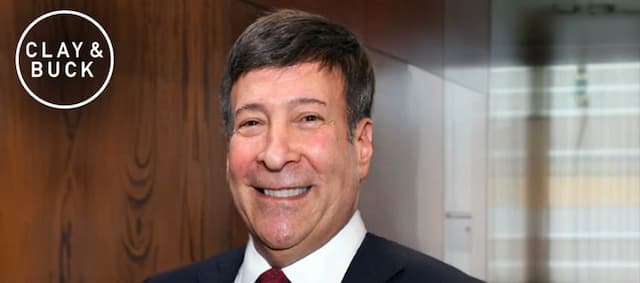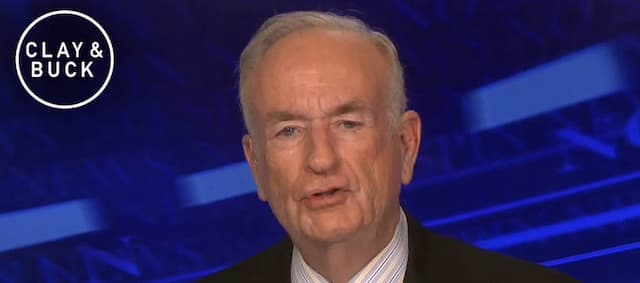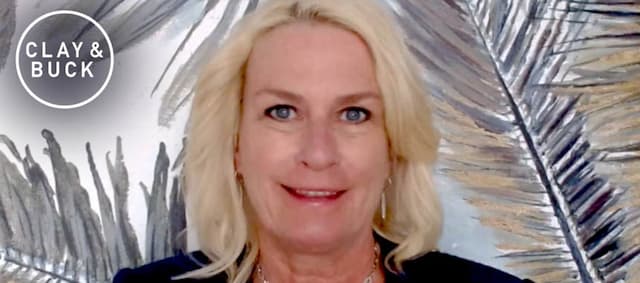Zach Van Meter on His Rescue Mission in Afghanistan
BUCK: I want to tell you about this story. “Trapped in Afghanistan, Rescued by Volunteers: How a Handful of Americans Freed 5,000 Afghans — From a lounge at the Willard Hotel in Washington, a group of men and women mobilized a global network to conduct a two-week military-style rescue operation,” which is known as the Commercial Task Force. We have Zach Van Meter with us now, who is a member of that Commercial Task Force and was heavily involved in coordinating this. He dispatched former commandos to Kabul on this two-week operation. Zach, thanks for being with us.
VAN METER: Thanks for having me.
BUCK: How did this all come together? Give folks a sense of who you are and what the genesis of the task force was.
VAN METER: So, I have no military background or Intel or anything, just in private equity. We looked at defense manufacturing, and in that business, you got to kind of hire the guys who used to work in that space. So, back up a couple years ago, we met this gentleman named Sean, who is heavily featured in the article. Sean called me one day and said, “Hey, you want to save 3,500 orphans?”
So, of course I said yes. Then he told me he’s in Afghanistan. So, I got a big lump in my throat and said, okay. You know, I was following the news as well. And then it kind of unfolded from there. So, we needed a place to put them. So, we called the UAE. And they said they would take them graciously.
And then Sean and a team went over to first Abu Dhabi and then to Kabul. Then we set up our joint center in D.C. to coordinate everybody from people trying to get their family members rescued to former SOF guys trying to get their troops out to, you know, people just trying to help American citizens, and it just evolved.
You had a mix of guys from two-star retired General Jim Linder in there, to people that worked at Goldman Sachs, to ex-military, former state people. You had the embassy of Afghanistan in there as well. And it was, you know, an incredible display of, you know, American pride and patriotism and everybody giving a part of their soul to try to help and save these heroes.
 BUCK: We’re speaking to Zach Van Meter. He’s a volunteer for the Commercial Task Force, which was responsible for getting thousands of people evacuated out of Afghanistan. Zach, can you just give us a sense of was the government — I mean, the actual, U.S. federal government, the Biden administration, were they encouraging, helpful, or in the way? How did you play in the sandbox, so to speak, with them?
BUCK: We’re speaking to Zach Van Meter. He’s a volunteer for the Commercial Task Force, which was responsible for getting thousands of people evacuated out of Afghanistan. Zach, can you just give us a sense of was the government — I mean, the actual, U.S. federal government, the Biden administration, were they encouraging, helpful, or in the way? How did you play in the sandbox, so to speak, with them?
VAN METER: Well, they were helpful in so much as they, after the fact, helped us in Abu Dhabi. After we got the Abu Dhabi guys to send these guys on a plane over, they came in afterwards. They were helpful in that that the DOD allowed our task force to help navigate and coordinate the issuance of flight controls for the commercial charters they were in. So, they helped.
I think they were completely caught off guard, like most everyone else, by how rapidly everything just devolved, and it was — you know, it was chaos. So trying to organize chaos is never easy. I don’t think anybody was prepared in D.C. or Kabul, or even just by nature of the fact that the Afghanis were fleeing, you know, for their lives. You got pictures and videos of these people being seven-, 800-meters deep, packed against the walls of the airport. Everybody trying to get out. So it was… It was chaos. I don’t want to criticize the government, because I still need them to help us. But the reality is, it was chaotic. And it was very, very, very disorganized.
BUCK: What were some of the…? Just give us a sense of, as you’re together… You’re saying you were working with the former special operations folks, former special operations folks, former generals, private sector people. The biggest challenges you face in getting people out. Just give us a sense. As you’re gathered together at a hotel in D.C. at the command center, you’re trying to conduct exfiltration operations on the other side of the world in Kabul, Afghanistan. The whole country is falling into the hands of the Taliban. As you say and we all saw, there’s tremendous chaos in Kabul airport. What are some of the things you had to troubleshoot on the fly?
VAN METER: Well, one of it was people not getting through the gates. Literally American citizens with blue passports getting through the gates. People with permanent residency cards. People on Taliban kill lists who were trying to escape, not being able to have access. And the Taliban were, I guess, negotiating with the State Department, not letting people through, letting people through.
Everything was shifting. It was… It was.. literally chaos. You know, one hour, everybody is going through one gate and then that stops. Then the next hour, we’re told to go through this gate. So we’re trying to assist people in navigating that chaos. At the same time we’re trying to, you know, facilitate getting flights in, getting cleared.
And a lot of these flights were funded by donors. Like, people that probably watch your show sent in money. I know Glenn Beck’s Mercury One funded the first flight in. And so, you know, they funded these flights for particular individuals. But individuals can’t get to the airport. So they’re also taking anybody and everybody.
BUCK: I saw in the article, Zach — I saw in the article — you actually put some of this on your own credit card, because you said it was the right thing to do, which is a very gallant move.
VAN METER: I did, yeah.
BUCK: I know a lot of people pitched in money. Glenn told me, I think, you raised over $20 million in just a couple of days. We had Glenn Beck on the show, earlier in the week. Glenn is an old friend of mine, an old mentor of mine. Did you get all the orphans out and where are the evacuees now?
 VAN METER: So unfortunately, we left a lot of people behind, Buck. A lot. And a lot of heroes that helped our service men over there are still there. We got some of the orphans out. There’s some in Abu Dhabi now. The majority of people that we helped by putting on charter flights, we pushed them to Abu Dhabi. So there’s approximately 3,900 left with orphans, mostly families. I think the numbers I got from one of the organizations was about 80% are women and children that were taken out. Yeah, it’s… (sigh) We left a lot of people behind.
VAN METER: So unfortunately, we left a lot of people behind, Buck. A lot. And a lot of heroes that helped our service men over there are still there. We got some of the orphans out. There’s some in Abu Dhabi now. The majority of people that we helped by putting on charter flights, we pushed them to Abu Dhabi. So there’s approximately 3,900 left with orphans, mostly families. I think the numbers I got from one of the organizations was about 80% are women and children that were taken out. Yeah, it’s… (sigh) We left a lot of people behind.
BUCK: So what’s the…? We’re speaking to Zach Van Meter, that was working, and did work to get thousands evacuated out of Afghanistan. And, Zach, what happens now? You said we left the people behind. The Taliban is in charge. They are now the government of Afghanistan. We all know that. What are we doing…? Does the work of the Commercial Task Force continue on? I know there might be operational sensitivities and, of course, I respect that. To whatever degree you can tell us what’s going on, what are they?
VAN METER: Yes. So we are focused on resettlement, relocation, and humanitarian activities. A lot of the members are now… First off, this is not an organized thing. It was just ad hoc. Anybody and everybody come help. So a lot of those guys that can still help are working on things like helping relocate and resettle Afghan nationals. We even got a request from, I guess, the still government abroad of Afghanistan, help them with, you know, getting passports printed and other things, because they have no foreign ministry now.
And then there’s a lot of people who still want to help those people, talking to people communicating with them daily. But we need guidance from the State Department. We need a procedure in place to put them on commercial flights. And at this moment, our single biggest issue is navigating the bureaucracy that our governments put in place that makes it very difficult for people who are willing — are ready, willing, and able — to help put people on flights to bring them here, bring them anywhere outside of Afghanistan to do so. So there’s a whole lot of blocks in place. Hopefully, with the help with groups like yourself. And other viewers who can call into your congressional office and knock those down.
BUCK: That’s what I wanted to ask you. Because this audience you’re speaking to is in all 50 states. You got a lot of former military listening, a lot of family members of military, just people who want to get in the fight and help and do the right thing. You’re saying, call your congressmen. Is there anything else that the Commercial Task Force needs? Any other way that people should reach out?
VAN METER: So there’s a lot of NGOs set up for this particular case. I would say if you want to donate time or energy, you can find these NGOs. There are hundreds of them. Call your congressmen. Call your senators. Write them letters. Tell them, you know, that we need to get these people out. These people fought alongside us. I know you were in foreign services at some point too. And you understand the sensitivity of what these guys went through.
 They secretly sometimes at night helped people. They helped us hunt down Osama bin Laden, they helped us hunt down the terrorists, and we promised them that we would build them a nation, and now we’ve left them at the mercy of those who previously occupied them. So we have a responsibility to them. And at the same time, we have people who want to pull them out, who do not have the capability because we’re diplomatically stalemated. So unblocking that is a priority, as well as trying to figure out how to bring them back here or put them into a nation that they can thrive and grow in.
They secretly sometimes at night helped people. They helped us hunt down Osama bin Laden, they helped us hunt down the terrorists, and we promised them that we would build them a nation, and now we’ve left them at the mercy of those who previously occupied them. So we have a responsibility to them. And at the same time, we have people who want to pull them out, who do not have the capability because we’re diplomatically stalemated. So unblocking that is a priority, as well as trying to figure out how to bring them back here or put them into a nation that they can thrive and grow in.
BUCK: Right. It’s interesting you brought up this, and people have been saying, there are friendly nations in the region where resettlement is also a very… You know, they’d be safe and it’s a sound option. Muslim majority countries, for a lot of the Afghan refugees who are getting out, would certainly make sense as well. So, Zach — Zach Van Meter of the Commercial Task Force, I appreciate so much, sir, you giving us some insight and perspective on this one. Thanks for what you’ve done.
VAN METER: Thank you, Buck. I appreciate you putting the message out and telling our story. You know, one last thing: There are people still trying to leave the country who are walking through Tajik or Uzbek or Pakistan and they can’t get out. There are people there that are trapped. You know, we need to do something about it. So any help you can get, any advocation you can do, we appreciate it and they deserve it.
BUCK: Absolutely. Zach, thank you so much, and please thank all the service members who helped you out too. Tell them we’re thinking about them and asking for them here. Thank you.
VAN METER: Thank you, sir. Bye.





